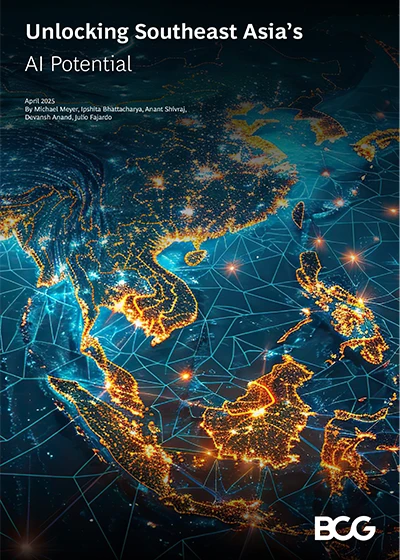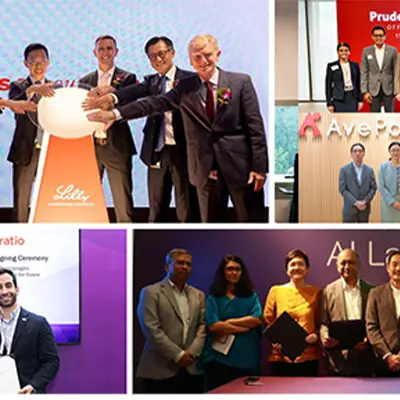1. Singapore takes a diverse view of AI’s industry applications and its ability to deliver high-value returns
Singapore’s AI strategy is anchored in supporting domain adoption — working closely with industry leaders across industry verticals to build and support competitive AI capabilities, deployments and operations. This means companies can pilot, validate, and scale AI applications here with measurable results, often before replicating them elsewhere.
Ih-Ming pointed to significant traction in “financial services, retail, so certainly in customer-facing functions and roles. A lot of value and productivity is already observable.”
Beyond these, manufacturing is also seeing substantial AI development, with a lot of new robotics companies utilising AI. Ih-Ming points out that Coca-Cola’s Singapore manufacturing plant in Tuas was added to the Global Lighthouse Network by the World Economic Forum for its significant AI-driven productivity gains of above 70 per cent. These are not isolated efforts – they reflect a deliberate strategy to partner with advanced manufacturers to build AI hubs with global relevance.
Healthcare, while moving at a different pace, is also a key arena for AI application due to its ability to solve complex, often pressing, problems. These diverse industrial applications demonstrate Singapore is more than just a testing ground – it’s a credible launchpad for advanced AI operations with global impact.
2. No matter the size of your business, opportunities for scalability abound here
Singapore's ecosystem supports businesses at all stages, from agile startups to multinational corporations looking to scale their AI implementations efficiently.
Ih-Ming observes, “For small companies, you can see that over the past few years, model costs have come down, so it's a lot more accessible. I think it's a really exciting time for small businesses.” This increased accessibility means that even smaller AI companies can find a conducive environment to develop and deploy their solutions.
For larger enterprises, the focus has shifted from experimentation to demonstrating clear Return On Investments (ROI) at scale. Incidentally, Singapore’s Enterprise Compute Initiative — first announced in budget 2025 — aims to offer Singapore-based companies access to cloud credits, related tools and consultancy services in furtherance of their AI transformation.
The initiative will help companies achieve a minimum viable product and implement change management processes. Find out more >>
3. Efforts to harmonise a fragmented regulatory landscape is underway
One of Singapore's most distinctive advantages, Ih-Ming explains, is its pragmatic stance on AI regulation. Unlike regions that might adopt a regulatory-first perspective or a laissez-faire approach, Singapore is forging a middle path.
The city-state is taking a principles-based approach, centred on developing practical tools for organisations and professionals to use. Ih-Ming points out that this is exemplified by the AI Verify foundation, which works with governments and companies, including undertaking a joint regulation mapping with the US’s National Institute of Standards and Technology (NIST).
The objective is to drive standards and give companies certainty in the face of a fragmented and diverse regulatory landscape.








